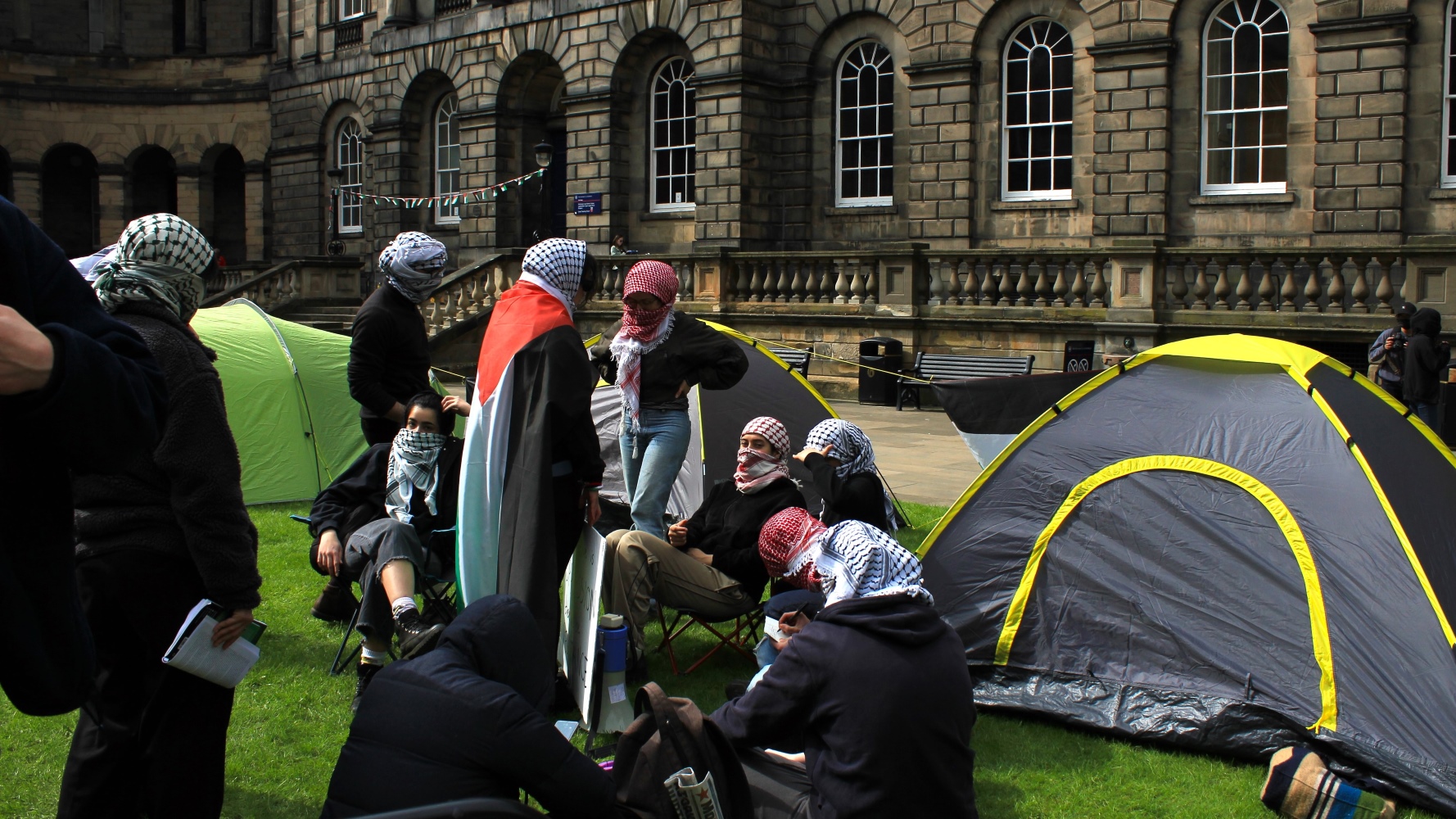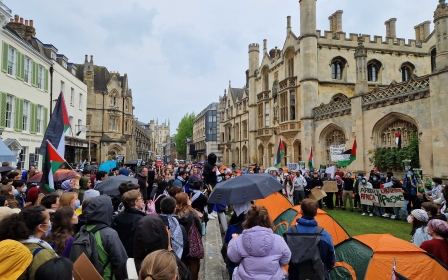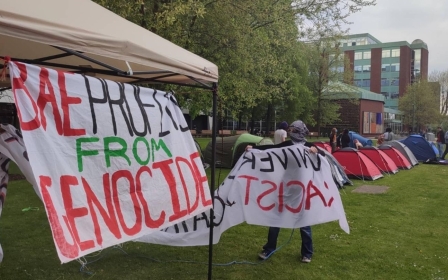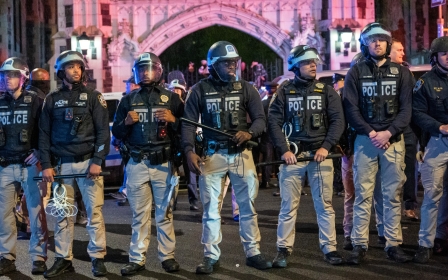British students launch Gaza sit-ins at Balfour’s old universities
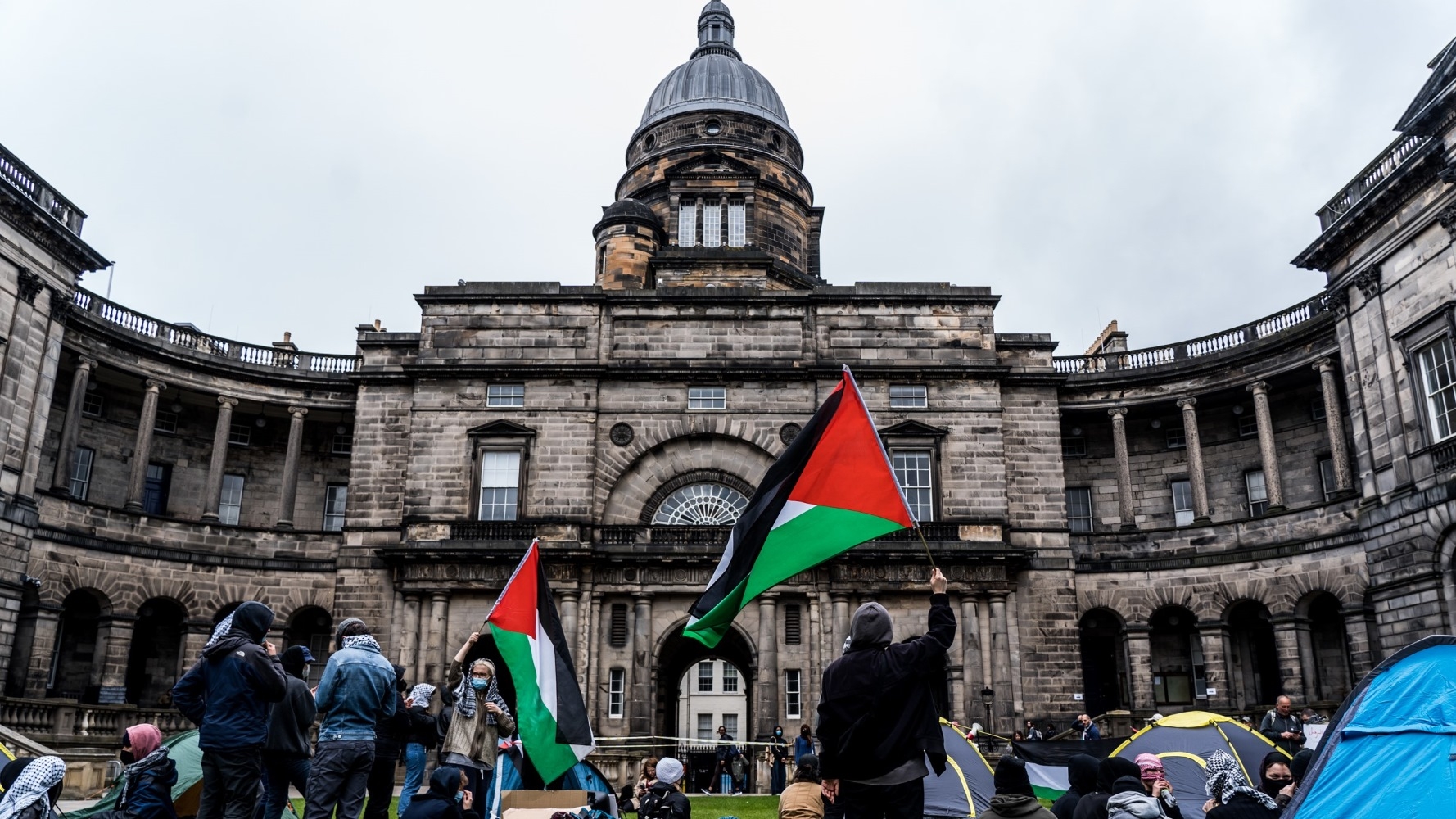
Students at two universities strongly associated with Lord Arthur Balfour have launched pro-Palestinian encampments on campus to protest Israel’s war on Gaza.
The protests at Edinburgh and Cambridge are part of a growing movement on campuses across the world, which involves students setting up protest camps to demand that their institutions break off ties with Israeli institutions, as well as companies involved in supplying arms to the state.
At Edinburgh, students wearing Palestinian scarves made their demands clear at the start of their protest at the university’s Old College .
In one video taken on Monday and provided to Middle East Eye by activists, a student with a loudspeaker is seen addressing fellow protesters.
“We demand that the University of Edinburgh divest entirely from companies tied to Israel and complicit in the globally acknowledged genocide of the Palestinian people,” the speaker says
New MEE newsletter: Jerusalem Dispatch
Sign up to get the latest insights and analysis on Israel-Palestine, alongside Turkey Unpacked and other MEE newsletters
“Up to £55m has been invested by the university in companies affiliated with and directly participating in the murder of tens of thousands of Palestinians.”
Also on Monday, hundreds of students gathered outside King's College at the University of Cambridge, setting up tents and making similar demands of the university’s administration to divest from companies linked to Israel’s war on Gaza.
Middle East Eye has asked both universities for comment, a spokesperson for the University of Cambridge said: "The University is fully committed to academic freedom and freedom of speech within the law and we acknowledge the right to protest.
"We ask everyone in our community to treat each other with understanding and empathy. Our priority is the safety of all staff and students.
"We will not tolerate antisemitism, Islamophobia and any other form of racial or religious hatred, or other unlawful activity."
In its statement, the University of Edinburgh said: "We support the right to take part in lawful, peaceful and respectful protest and we are monitoring the situation to ensure the safety of the protestors, while also working to minimise disruption to staff, students and visitors to our campus."
Crackdown on protests
Balfour is infamous in the Middle East and beyond for his eponymous declaration, which paved the way for the Zionist settlement of historic Palestine and the eventual expulsion of its native Arab people.
A graduate of Trinity College at Cambridge, Balfour later became chancellor of the Universities of Cambridge and Edinburgh.
He also served as British prime minister and was foreign secretary when he issued the Balfour Declaration in 1917 promising Jews a homeland in Palestine.

The decision paved the way for the mass migration of European Jews to Palestine under the British Mandate, culminating in the Nakba of 1948, which saw the establishment of the Israeli state and expulsion of more than 700,000 Palestinians from their homes.
Many of those expelled found refuge in the Palestinian territory of Gaza, where their descendants remain today.
Authorities across the US and Europe are struggling to contain the growing number of pro-Palestinian protests on campuses.
In the US, authorities have called in riot police to remove students from encampments and from buildings they have been occupying.
Members of the US Congress have worked to stifle the protests by introducing legislation expanding the definition of antisemitism to include criticism of Israel and calling on public bodies, such as universities, to ensure "federal anti-discrimination laws" are implemented.
In France, police have similarly been called in to remove protesters at institutions including Sciences Po.
Middle East Eye delivers independent and unrivalled coverage and analysis of the Middle East, North Africa and beyond. To learn more about republishing this content and the associated fees, please fill out this form. More about MEE can be found here.


